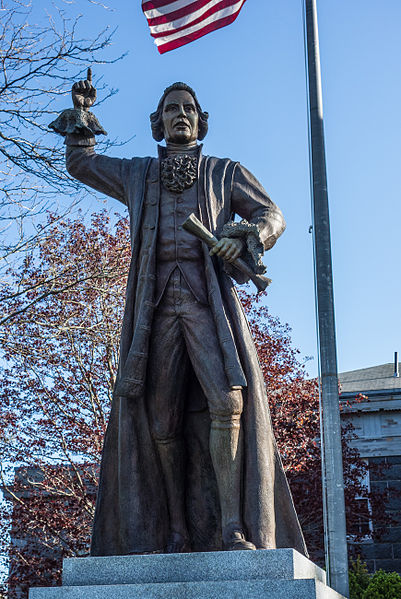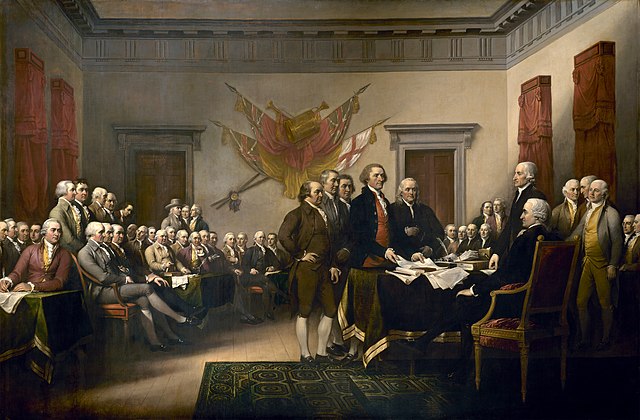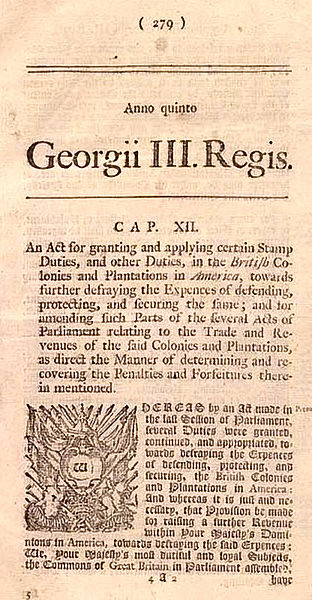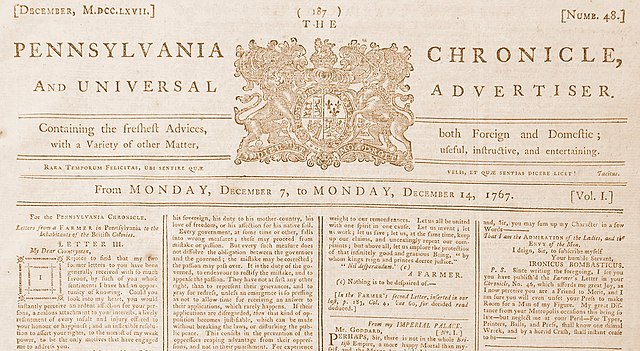No taxation without representation
"No taxation without representation" is a political slogan that, though rooted in the Magna Carta, originated in its present form during the American Revolution and which expressed one of the primary grievances of the American colonists for Great Britain. In short, many colonists believed that as they were not represented in the distant British parliament, any taxes it imposed on the colonists were unconstitutional and were a denial of the colonists' rights as Englishmen.
Bronze sculpture of James Otis, Jr stands in front of the Barnstable County Courthouse.
Shimer College student holds "No tuition without representation" sign during protest over school governance in 2010.
The standard-issue District of Columbia license plate bears the phrase, "Taxation Without Representation".
The American Revolution was a rebellion and political movement in the Thirteen Colonies which peaked when colonists initiated an ultimately successful war for independence against the Kingdom of Great Britain. Leaders of the American Revolution were colonial separatist leaders who originally sought more autonomy within the British political system as British subjects, but later assembled to support the Revolutionary War, which successfully ended British colonial rule over the colonies, establishing their independence, and leading to the creation of the United States of America.
The Committee of Five presenting its draft of the Declaration of Independence to the Second Continental Congress in Philadelphia on June 28, 1776, depicted in John Trumbull's 1818 portrait, Declaration of Independence
Notice of the Stamp Act 1765 in a colonial newspaper
Letter III of John Dickinson's Letters from a Farmer in Pennsylvania, published in the Pennsylvania Chronicle, December 1767
On June 9, 1772, the Sons of Liberty burned HMS Gaspee, a British customs schooner in Narragansett Bay.







